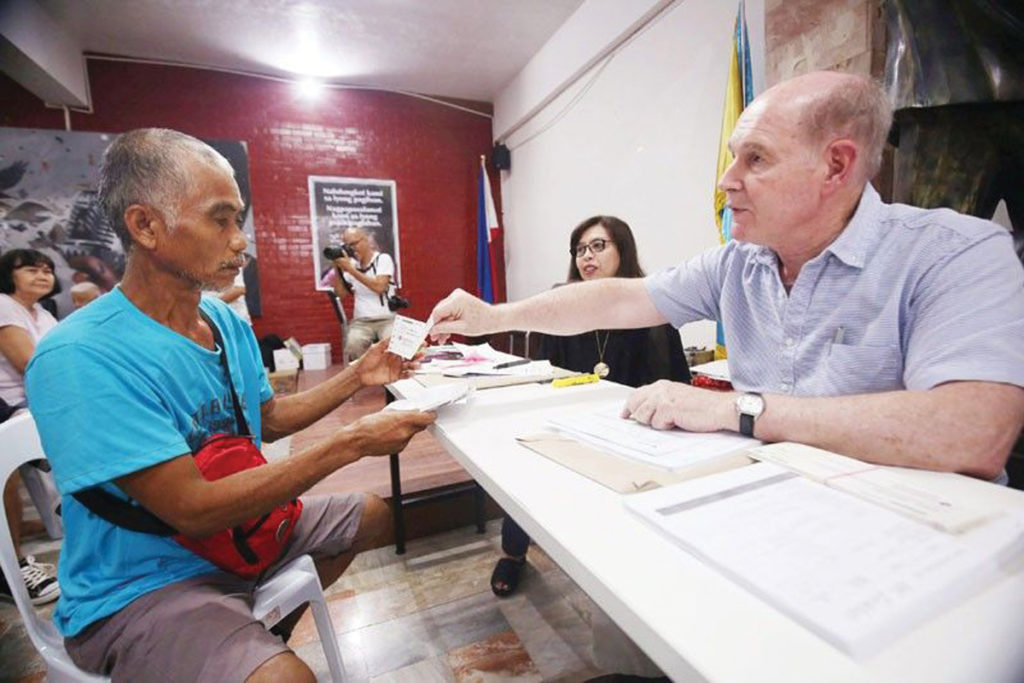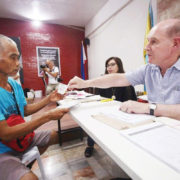
Delisted martial law victims and their relatives on Tuesday, July 9, confronted American lawyer Robert Swift about why they were taken off the official list of people to be awarded compensation after winning the Hawaii class action suit that resulted in a nearly $2-billion award for some 6,000 martial law victims.
“We were one of the first to join the Hawaii lawsuit in 1986, but why were we delisted? There are a lot of us from Region 3 who were delisted. Our husbands are still missing. Until now we have no justice. There were a lot of true victims who were denied,” said Helena Jimenez in Filipino during a forum at the University of the Philippines Law Center.
According to her, she only received compensation once, through Republic Act No. 10368 or the Human Rights Victims Reparation and Recognition Act of 2013, managed by the now-defunct Human Rights Victims’ Claims Board (HRVCB).
She was not awarded compensation when a New York federal court ordered the distribution of $13.75 million to Marcos human victims earlier this year.
Jimenez was not alone — of the initial class members of close to 10,000, only around 6,000 received compensation after they had completed the requirements for registration.
A requirement to claim compensation was submitting claim forms twice, first in 1993, and again in 1999.
Swift, for his part, said: “I would have been delighted to only require the 1993 class filing but the court required the second filing.”
“It wasn’t until 2011 when there was money to distribute that the court made the ruling as to eligibility, saying that people must have filed in both years,” he added.
Carol Araullo, a claimant, said she never got a notice to register a second time despite never changing her address.
Swift explained that the delisting due to circumstances beyond the control of lawyers, such as the failure of the postal system to deliver letters in time.
“They only gave me five weeks. We tried to get the word out, we sent letters to class members, we worked furiously to do that,” he said.
He also said that there was not much he could do as he had to abide by a court order.
“There was an order and I have to abide by that order,” Swift said.
“In litigation, you don’t always get what you want. You try hard, but ultimately it’s up to the court to decide that,” he added.





